SPECworkstation 3.0.2 Storage Benchmark
SPECworstation benchmark is an excellent benchmark to test systems using workstation type workloads. In this test, we only ran the Storage component, which is fifteen separate tests.
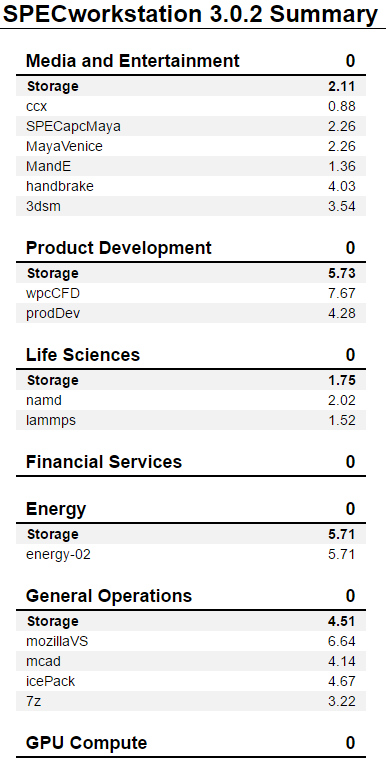
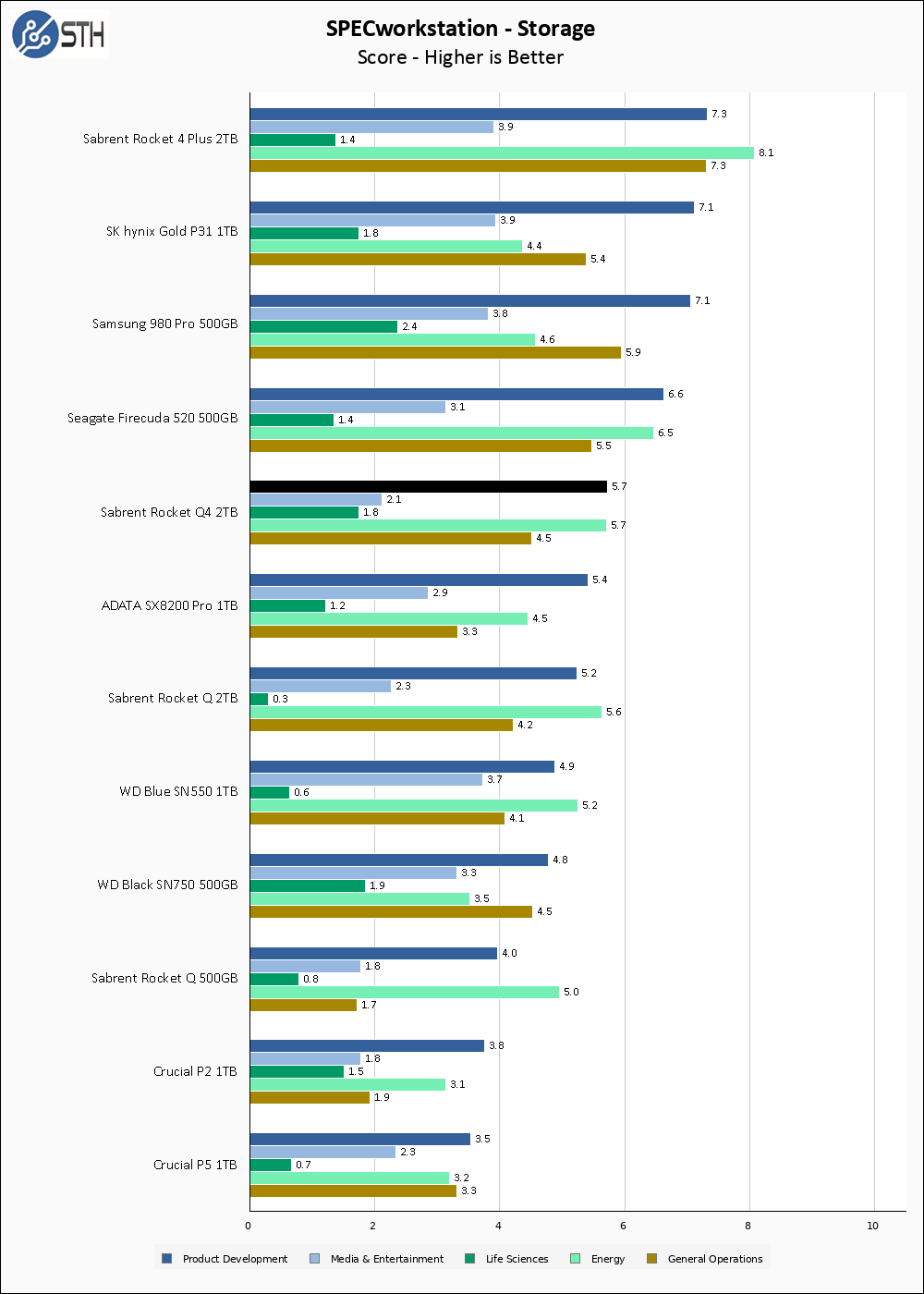
Performance in SPECworkstation Storage is good overall, though the Rocket Q4 2TB does not win overall in any of the subtests.
Benchmark Comparisons
Two comparisons come to mind when reviewing this drive; the first would be a comparison to the PCIe 3.0 predecessor, to see exactly what the upgrade to PCIe 4.0 has brought to the table.
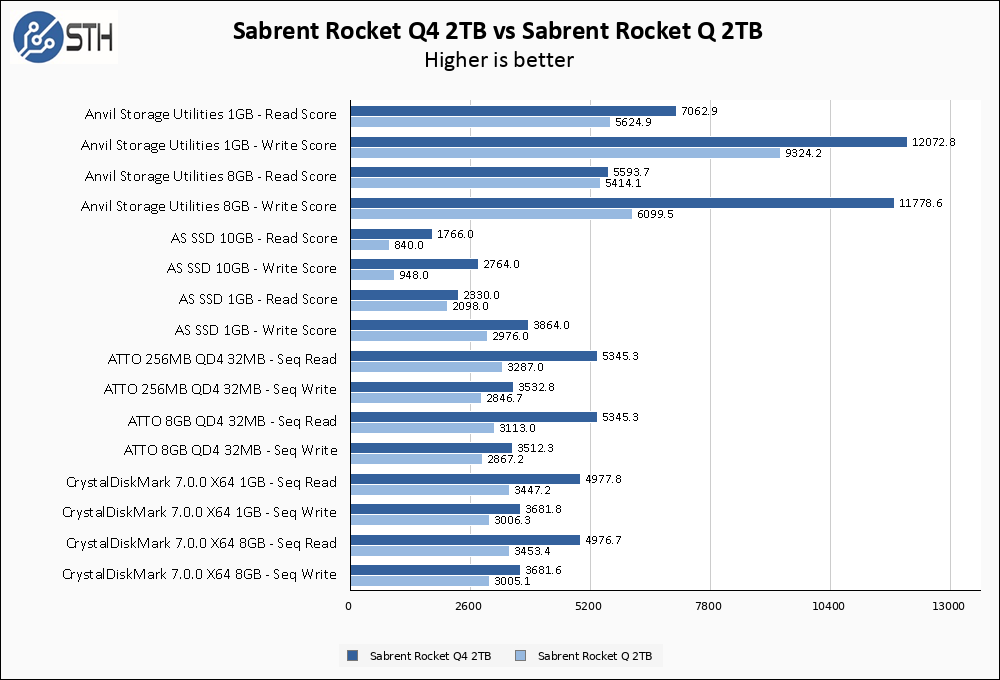
As you can see, performance versus the PCIe 3.0 drive has increased across the board, and usually by a good margin.
I also wanted to point out the comparison between the flagship TLC Rocket 4 Plus 2TB and the more mainstream QLC drive.
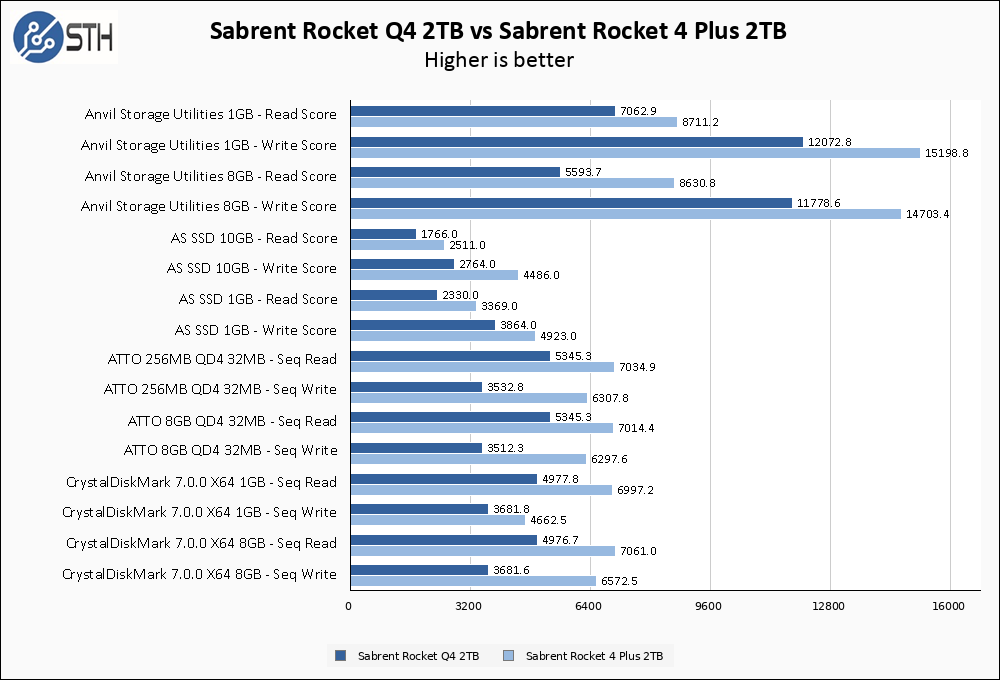
This graph looks similar to the previous one, but with the roles reversed; the QLC-based Rocket Q4 2TB loses soundly to the TLC-based Rocket 4 Plus. The Plus drive has the benefit of the newer Phison PS5018-E18 controller, which amps up its performance.
I would like to have also included a direct comparison to Sabrent’s last-gen PCIe 4.0 drive, the Rocket NVMe 4.0 2TB, but alas I do not have that drive in my benchmark database. I do have some benchmarks from the 500GB and 1TB variants of the Rocket NVMe 4.0, and I can infer from those results that the Rocket Q4 2TB would likely be close to the performance of the Rocket NVMe 4.0 2TB.
Temperatures
We monitored the idle and maximum temperature during testing with HWMonitor to get some idea of the thermal performance and requirements of the drive. Please keep in mind that our test bench is an open frame chassis in a 22C room, but with no direct airflow. As a result, this is not representative of a cramped low airflow case and is instead intended to model temperatures of a drive ‘on its own’.

This drive ran cooler than I was expecting, with a peak at 65C during load.
Again, we are mostly looking for the absence of runaway thermals here during our testing rather than comparing drives to each other.
Final Words
The Sabrent Rocket Q4 2TB is $320, which is $80 less than the flagship Rocket 4 Plus 2TB. That price point also puts the Rocket Q4 2TB on the lower-end of all the PCIe 4.0 NVMe SSDs. However, the Rocket Q4 still maintains a big price premium over PCIe 3.0 SSDs; as an example the PCIe 3.0 Rocket Q 2TB is available for $100 less at $220. What is interesting here is that we are starting to see a bigger price premium on the consumer NVMe side versus the enterprise/ data center NVMe side. Take a look at the Kioxia CD6-L PCIe Gen4 NVMe SSD Review Ending Data Center SATA as an example of where the PCIe Gen4 data center SSDs are now reaching into SATA drive territory on the data center side.
In comparison with other PCIe 4.0 NVMe SSDs, I think there is a good value proposition in the Rocket Q4. The overall performance of the drive impressed me, maintaining a clear distinction in performance over the PCIe 3.0 SSDs in my benchmarking database, while not quite climbing to the same heights of pricing (or performance) of the top-end PCIe 4.0 drives.
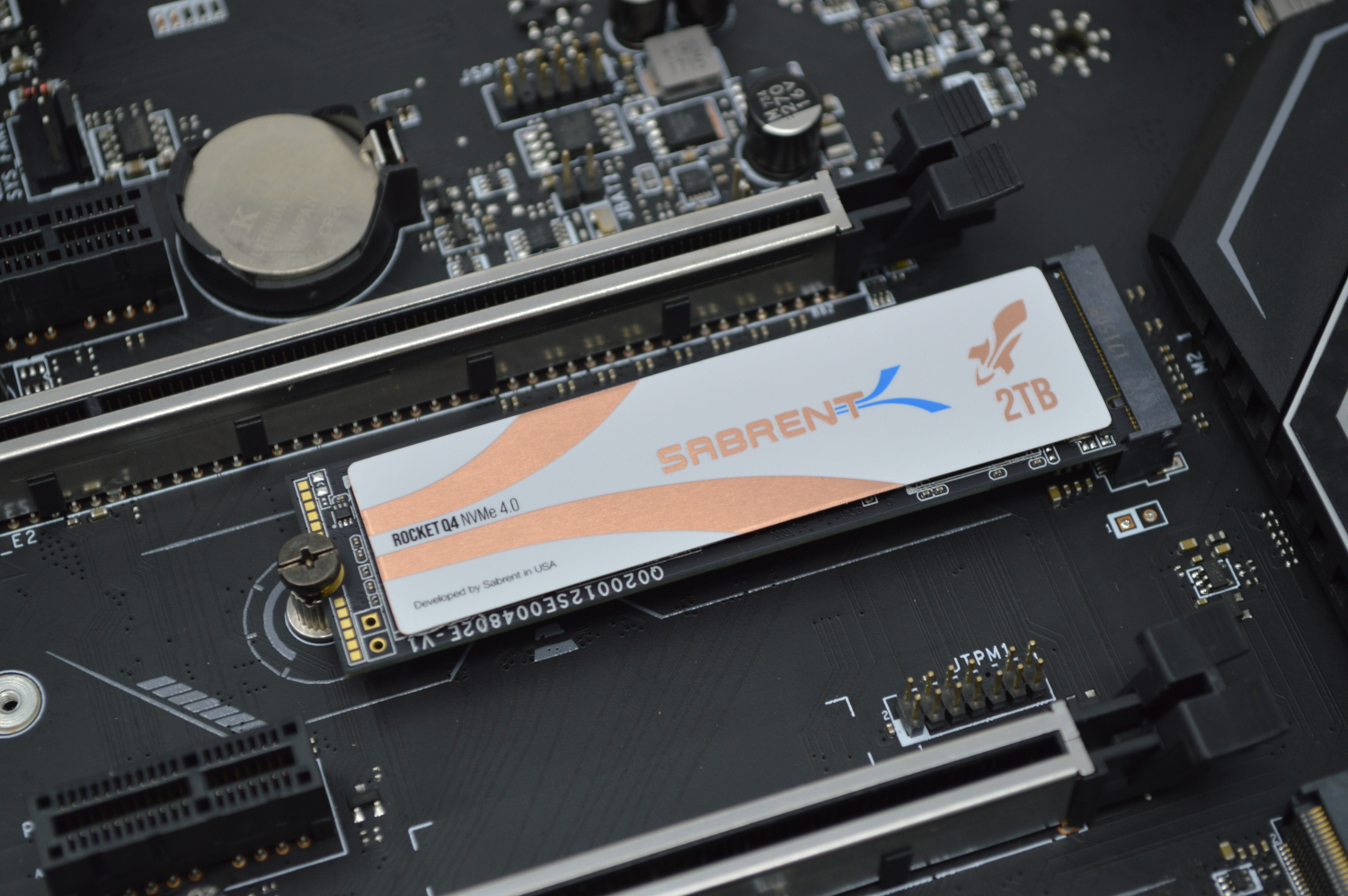
As an entry-point into PCIe 4.0 SSDs, the Sabrent Rocket Q4 2TB is solid. If you want the very best performance, then the Rocket 4 Plus 2TB or WD Black SN850 2TB are higher performing drives, but at a higher price point to go with it. If you are aiming for the nexus of value and performance, then the Rocket Q4 2TB is a solid entry and worthy of your consideration.

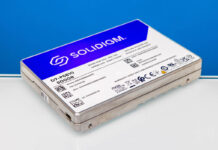
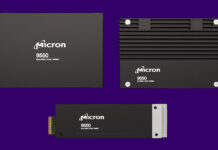
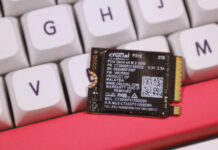
I’m very happy about any storage review, but I surprised to see so many reviews on non-pro storage (QLC and DRAM-less) here on STH. There are a lot of interesting “server” storage that could be interesting to have a closer look at. Seagate have a lot of pro and semi-pro drives for example.
Another thing I would really appreciate included is SQL performance benchmarks.